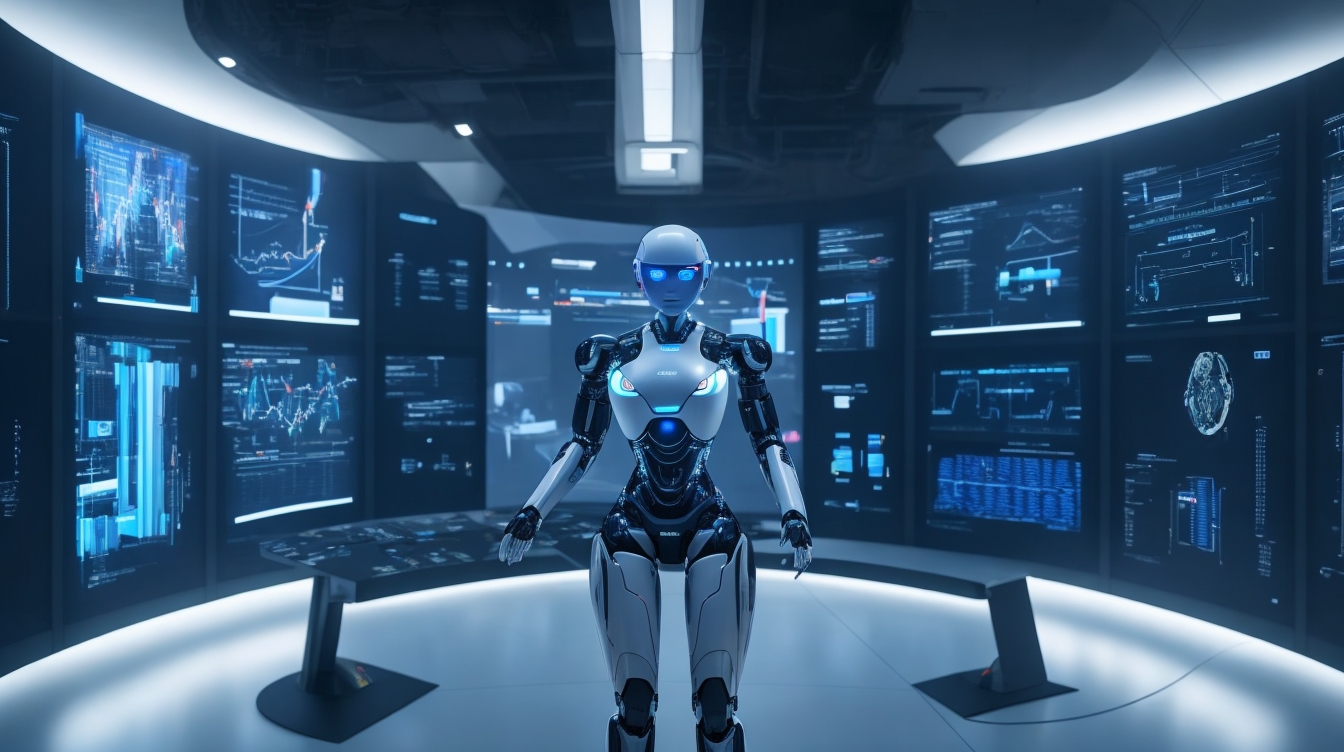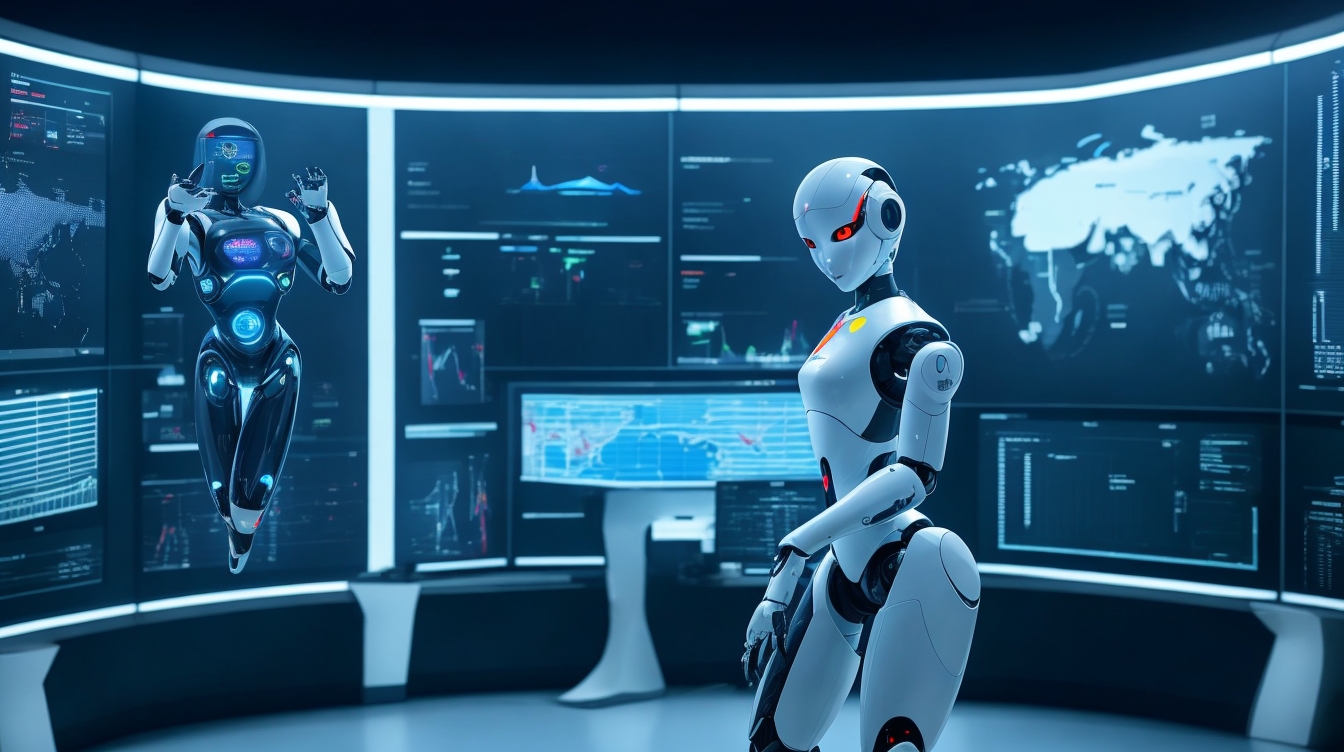The Emergence and Impact of AI in Content Personalisation: In this era of digital marketing, AI has become an indispensable tool for businesses to deliver personalised content to their customers. It's a powerful weapon in the arsenal of marketers, as AI enables them to tailor their messages, products, and services to each of their audience members to make every interaction feel unique and special.
This shift in marketing strategy is creating a significant impact, as companies are adopting innovative ways to stay ahead in the competition while ensuring a seamless customer experience with personalised content.
Understanding AI and Content Personalisation
What is AI Content Personalisation? AI content personalisation is the customisation of content based on the unique preferences, behaviours, and interests of individual users. It involves using artificial intelligence and machine learning algorithms to gather, analyse, and process vast amounts of customer data. This, in turn, allows marketers to provide personalised content that resonates with the target audience.
The Role of AI in Content Marketing: AI plays a vital role in content marketing by automating various aspects of content creation, curation, and distribution. It enables marketers to segment their audience, gain insights into user behaviour, and adjust their marketing strategies accordingly.
The Intersection of AI and Personalisation: The use of AI technologies in personalisation enhances and complements traditional personalisation methods. As AI systems learn from user data, they become better at predicting customer preferences and delivering tailor-made content, leading to improved conversion rates and customer satisfaction.
The Mechanism of AI in Content Personalisation
How AI Analyses Data for Personalisation: AI systems collect a diverse range of data points from users, such as browsing history, purchase behaviour, demographics, and social media interactions. These are then analysed using sophisticated algorithms to determine patterns and predict future behaviours.
The Role of Machine Learning in Content Personalisation: Machine learning is a key component of AI that powers content personalisation. It enables AI systems to learn from data, identify patterns, and make informed decisions. With continuous training and exposure to user data, machine learning systems can accurately tailor content recommendations based on evolving user preferences and behaviour.
Real-Time Personalisation with AI: One of the advantages of using AI in content personalisation is its ability to deliver real-time personalisation. As AI algorithms constantly gather and process data, they can adapt on the fly to provide personalised content that is relevant and engaging at that particular moment.
Benefits of AI for Content Personalisation
Enhancing Customer Experience with AI: By providing personalised content, AI systems help create a positive customer experience that encourages brand loyalty and long-term retention. Customers are more likely to feel valued and engaged when the content they see is tailored specifically to their tastes, needs, and interests.
Boosting Conversion Rates with AI Personalisation: Studies have shown that personalised content can lead to a significant increase in conversion rates. AI-driven personalisation allows marketers to present the most relevant products, services, and offers, thus enticing users to take the desired action.
AI and the Future of Personalised Marketing: As AI technologies continue to advance, businesses are poised to witness even greater benefits in content personalisation. This includes anticipating customer needs, providing hyper-personalised content, and engaging users in more immersive experiences.
AI in Action: Successful Implementations of AI in Content Personalisation
Netflix is a prime example of how AI has revolutionised content personalisation. With over 200 million subscribers, the company utilises AI algorithms to predict user preferences based on viewing history, ratings, and browsing patterns. This enables them to provide highly personalised content recommendations that keep users engaged and coming back for more.
Another example is Amazon – a pioneer in utilising AI for personalised marketing. Their recommendation system combines user information with collaborative filtering techniques to suggest products which customers are highly likely to enjoy and purchase.
Lessons Learned from AI Personalisation Strategies: These case studies highlight the importance of investing in AI and machine learning technologies for content personalisation. They demonstrate that businesses willing to adapt and leverage these technologies can successfully target their audience with tailored content and improve their conversion rates and customer satisfaction.

Challenges and Solutions in AI for Content Personalisation
Common Hurdles in Implementing AI Personalisation: Despite the benefits, businesses may face certain challenges when implementing AI-driven content personalisation, such as:
- Data privacy concerns: Ensuring that customer data is collected, processed, and stored securely and in accordance with GDPR and other data protection regulations is crucial.
- High cost and technical expertise: Implementing and maintaining AI systems can be expensive and may require the support of skilled professionals in data science and machine learning.
Overcoming Challenges with Advanced AI Models: To overcome these challenges, companies can adopt the following strategies:
- Invest in data security measures and follow industry best practices for data privacy.
- Collaborate with AI experts, technology partners, or data science agencies if in-house expertise is limited.
- Leverage available AI and machine learning tools, platforms, and frameworks to save time and resources.
Future Trends in AI for Content Personalisation
Predictions for AI and Personalisation: AI technology is poised to continue transforming the world of content personalisation. As algorithms grow more advanced and accurate, the following trends can be expected:
- Greater emphasis on data-driven marketing strategies.
- Increasing adoption of AI in industries such as healthcare, education, and fashion.
- Improved understanding of user emotions, sentiments, and context, leading to more sophisticated personalisation.
Preparing for the Future of AI in Content Marketing: To stay ahead of the curve, businesses must:
- Stay informed about the latest AI and machine learning developments.
- Regularly assess and update their personalisation strategies to keep pace with technological advancements.
- Train their marketing teams to work with AI tools and make data-driven decisions.
Conclusion: The Transformative Power of AI in Content Personalisation
In conclusion, AI has the potential to revolutionise content personalisation, enhancing customer experiences and driving higher engagement and conversion rates. By understanding and embracing this technology, businesses can thrive in an increasingly competitive landscape and offer their users content that truly caters to their preferences. With continually evolving AI capabilities, the future of content personalisation promises to be even more captivating and rewarding for both businesses and consumers.

The Role of AI in Content Identification, Creation, Distribution and Optimisation
Content Identification: AI systems are capable of identifying the most relevant and engaging content for users. They sift through vast amounts of data to identify user preferences and behaviours. This information helps marketers determine the type of content that should be created, as it provides insights into the audience's interests, needs, and preferences.
Content Creation: AI-powered content creation tools are making it increasingly easy to generate high-quality and unique content for different audiences. Natural Language Processing and Generation (NLP and NLG) technologies enable AI algorithms to understand human language, create coherent text, and adjust the tone and style based on user preferences.
Content Distribution: AI systems can effectively distribute content to the right audience at the optimal time. They can analyse user's browsing habits, geographical location, device type, and other factors to ensure the content is effectively targeted and personalised. Platforms like email marketing, social media, and websites can be optimised for content distribution with the help of AI.
Content Optimisation: AI drives continuous improvements in content by analysing key performance metrics such as clicks, conversions, and engagement rates. AI algorithms can test different variations of content – from headlines to layouts to CTA placements – and refine them iteratively, resulting in optimised content that resonates with users and maximises conversions.
The Use of AI in Hyper-Personalisation Across Various Industries
AI is revolutionising hyper-personalisation in industries beyond digital marketing:
- Healthcare: AI allows the creation of personalised healthcare plans based on a patient's medical history, genetic profile, and lifestyle factors. This leads to more precise diagnoses, tailored treatment plans, and improved patient outcomes.
- Education: AI systems can customise learning experiences for students based on their specific learning styles, strengths, and weaknesses. This enables educators to provide personalised study materials, recommend tailored learning pathways, and gauge student progress more accurately.
- Retail: AI-driven personalisation enables retailers to offer product recommendations, promotions, and shopping experiences that cater to the unique preferences of individual customers, leading to increased customer satisfaction and sales.
Limitations and Frustrations of Personalisation Without AI
Without AI, content personalisation relies on manual processes, which can be time-consuming, error-prone, and limited in scope. Some limitations and frustrations of personalisation without AI include:
- Inability to process large volumes of user data effectively
- Limited personalisation based on simple user attributes such as location or demographics
- Time-consuming and labour-intensive nature of manual content personalisation
- Ineffective targeting and difficulty in adapting to user preferences in real-time

The Impact of AI on Personalisation Strategies and Marketing Operations
AI impacts personalisation strategies by:
- Enhancing customer experiences: AI enables marketers to deliver content tailored to each customer's preferences, thereby fostering deeper connections with the audience.
- Streamlining marketing operations: AI automates tasks involved in content generation, distribution, and optimisation, leading to increased productivity and efficiency.
- Enabling data-driven decision-making: Marketers can make informed decisions regarding their content strategies based on insights gained from AI-driven data analysis.
The Role of AI in Managing Large Customer Data Sets Efficiently
AI systems excel at processing and managing large customer data sets with unmatched efficiency. This allows marketers to:
- Identify patterns and trends in user behaviours: AI algorithms can quickly analyse vast amounts of user data to detect patterns that would otherwise go unnoticed in manual analysis.
- Segment and target audiences effectively: AI can automate audience segmentation, ensuring that each group receives personalised content.
- Ensure data integrity: AI automates data cleansing and validation processes, ensuring accurate and high-quality data for personalisation.
The Use of AI in Auto-Personalisation and Real-Time Content Delivery
Auto-personalisation is the process of automatically customising content for each user without manual intervention. AI can deliver auto-personalisation in real-time by:
- Continuously collecting user data: AI systems gather data on user preferences and behaviours during their interaction with the content.
- Analyzing data in real-time: AI algorithms process the data quickly to identify emerging patterns and adjust personalisation accordingly.
- Updating content dynamically: AI-driven content management systems can rapidly change the content displayed to users based on real-time data inputs, ensuring that users always receive relevant and engaging content.

AI Automation Agency Services for Digital Marketing Content
AI-driven automation agency services are revolutionising the creation, management, and distribution of digital content across multiple platforms, including authority websites, social media, visual assets, and mobile applications.
Creating Authority Websites with AI
Authority websites are online platforms that provide in-depth, valuable, and trustworthy information on a specific topic or niche. AI-powered agency services can help develop and maintain such websites by:
- Conducting automated keyword research: AI algorithms can efficiently identify high-traffic, low-competition keywords for content development, ensuring the website's relevance and discoverability.
- Generating high-quality content: Using natural language processing and generation technologies, AI tools can create detailed, well-structured, and search engine optimised content on various subjects.
- Optimising content layout and design: AI algorithms can test and analyse different content formats and layouts to determine the optimal design that maximises user engagement and user experience.
Crafting and Distributing Social Media Posts with AI
AI-driven agency services can enhance social media content creation and management by:
- Identifying optimal posting times: AI algorithms can analyse user data to determine the optimal time of day and posting frequency for each platform, maximising exposure and engagement.
- Generating engaging post copy: AI-powered tools can craft catchy headlines, captions, and call-to-actions that resonate with the target audience.
- Automating content distribution: AI systems can schedule and automatically publish social media posts across various platforms, ensuring consistency in posting and efficient use of time and resources.
Designing Feature Images with AI
AI can assist in designing visually appealing and impactful feature images for blog posts, website banners, social media, and advertising campaigns:
- AI-driven visual design tools: These tools can generate professional-quality graphics based on design preferences and generate variations for A/B testing.
- Image recognition and personalisation: AI algorithms can analyse and categorise images based on user preferences and suggest relevant visuals that cater to their tastes and interests.
- Automated image optimisation: AI systems can resize, compress, and sequentially load images for optimal performance on different devices and platforms, thereby enhancing user experience and page load times.
Developing AI-Driven Apps
AI can be integrated into mobile applications to enhance functionality, personalisation, and user experience:
- Personalised recommendations: AI algorithms learn from user behavior to provide tailored recommendations such as products, services, news, or entertainment content.
- Predictive text and voice recognition: AI systems can improve user interactions with mobile applications by enabling smoother text input and accurate voice commands.
- Enhanced communication: AI-driven chatbots and virtual assistants can provide personalised support, guidance, and recommendations to users in real-time.
In conclusion, AI automation agency services have the potential to vastly improve the effectiveness and efficiency of digital marketing efforts across various platforms. By leveraging AI's data processing and content creation capabilities, businesses and marketers can deliver highly personalised, relevant, and engaging content that resonates with their target audiences and drives conversions.

FAQs
How can AI-powered content personalisation impact customer experience and conversion rates?
AI-powered content personalisation can enhance customer experience by providing tailored content based on users' individual preferences and behaviours. This hyper-personalised approach fosters deeper connections with the audience, leading to increased brand loyalty and customer engagement. Research indicates that personalised content can result in a significant spike in conversion rates, as users are more likely to take the desired action when presented with relevant and personalised offers or recommendations.
In what industries can AI-driven hyper-personalisation be adopted?
AI-driven hyper-personalisation principles can be applied across various industries, such as healthcare, education, and retail. In healthcare, AI allows creating personalised treatment plans based on patients' unique medical histories and genetic profiles. In education, AI systems can customise learning experiences based on students' individual strengths, weaknesses, and learning styles. AI-driven retail systems can personalise product recommendations, promotions, and shopping experiences to cater to each customer's unique preferences, resulting in increased satisfaction and sales.
What are the main challenges and possible solutions in implementing AI-driven content personalisation?
Some of the main challenges in implementing AI-driven content personalisation include data privacy concerns, high costs, and the need for technical expertise. To address these challenges, businesses can:
- Invest in data security measures and adhere to industry best practices for data privacy.
- Collaborate with AI experts, technology partners, or data science agencies to compensate for limited in-house expertise.
- Leverage available AI and machine learning tools, platforms, and frameworks to save time and resources.
How can AI enhance content identification, creation, distribution, and optimisation?
AI systems can process vast amounts of user data to identify content preferences and behaviours, thus assisting in content identification. In content creation, AI-powered tools and technologies like natural language processing and generation enable crafting coherent text tailored to user preferences. AI algorithms can analyse user behaviour to distribute content to the right audience at the optimal time. Continuous analysis of key performance metrics and iterative testing of different content variations enables AI-driven content optimisation that maximises user engagement and conversions.
What roles can AI automation agency services play in developing digital marketing content?
AI automation agency services can help in the creation, management, and distribution of digital marketing content across platforms like authority websites, social media, visual assets, and mobile applications by:
- Conducting automated keyword research and generating high-quality, optimised content.
- Determining optimal posting times and automating content distribution across social media platforms.
- Designing visually appealing feature images suitable for different devices and platforms using AI-driven visual design tools.
- Developing mobile applications with personalised recommendations, predictive text input, and enhanced communication via AI-driven chatbots or virtual assistants.


